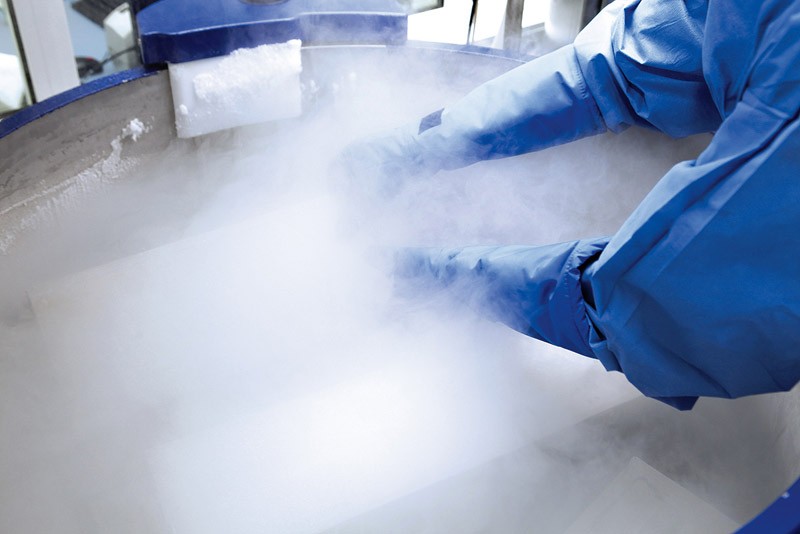Extreme Temps are No Match for the Right PPE
This is the first in a series of articles about Cryogenics and the personal protective equipment (PPE) specifically designed to keep humans safe when working with extreme temperatures. This article provides an overview of the industry and the dangers humans can face when working with extreme temperatures.
MDS Associates has been selling industrial safety and protective gear for more than 30 years. During that time, we’ve identified the best partners and have chosen three lines of protective gloves and aprons to carry – Superior Glove®, National Safety Apparel and PIP® (Protective Industrial Products).
What is Cryogenics
Let’s start with the basics. Cryogenics is the study of what happens to materials when they are exposed to really low temperatures. One of the first properties scientists tested was the electrical resistance of particular metals at these temps. Researchers knew that electrical resistance tends to decrease with decreasing temperature and wondered how this could be applied in the real world.
It started with using treated materials in the home. Electrical appliances (refrigerators, heaters, toasters, hair dryers, TVs and more) are very inefficient because a lot of energy is wasted overcoming resistance. Appliances with little or no electrical resistance could operate at much less cost than existing appliances.
Scientists were able to take this a step further, because electrical resistance drops to almost nothing when the temperature is lowered close to absolute zero. The result is superconductivity and this breakthrough has led to incredible inventions and applications in modern manufacturing.
As an example, superconductors are used to make some of the strongest magnets available, which led to the invention of magnetic resonance imaging (MRI) machines.
Today, physicists, chemists, material scientists, and biologists use cryogenics to study the properties of metals, as well as the properties of insulators, semiconductors, plastics, composites, and living tissue. Over the years, this research has resulted in the identification of a number of useful properties, for example brittleness. The recycling industry hardens recyclables using liquid nitrogen, after which they are easily pulverized and separated for reprocessing.
While cryogenics is a useful science that holds great promise, those working in the field expose themselves to risk. When gas is in a liquid state, it is very free flowing and lightweight – in some cases able to spill upwards out of a container or beaker. In addition, the liquid’s density is such that it immediately penetrates traditional fabrics until it reaches the skin. It is not well-defined at what point on the temperature scale refrigeration ends and cryogenics begins, but scientists[1] assume a gas to be cryogenic if it can be liquefied at or below −238 °F
When gases cooled to liquefying temperatures come into contact with the skin, it immediately freezes. As with frostbite, the cells are frozen and destroyed. As the nerves are frozen, there is no pain until the tissue begin to thaw, when it becomes extremely painful and results in a workplace accident.
As such, those working on the field have industry and OSHA guidelines that are aimed to prevent injuries. But the best laid plans work best when using the right personal protective equipment for the task at hand!
Our second article in this series will focus on Superior Glove® and the technology they use to make sure the people using their cryogenic personal protection equipment receive maximum hand protection.
+shop for Cryogenic hand protection here
Monday – Friday 8:30am – 4:30pm EST
Call or Click Today
Samples. Non-Published Volume Discounts. Questions.
Toll-Free +800-274-4637 | +716-668-4001 | [email protected]
"We Want You To Return Home Safely...Every Day!



